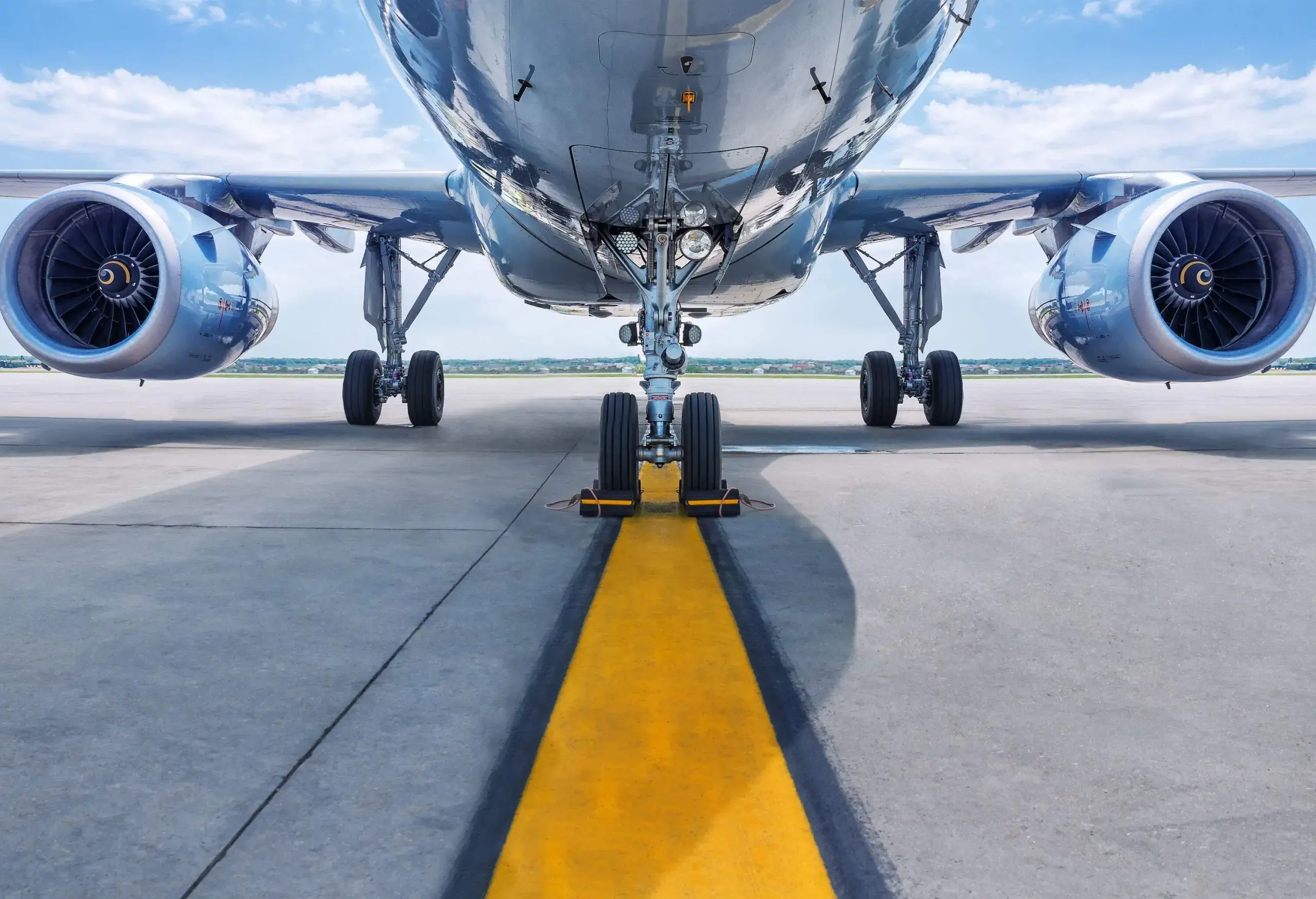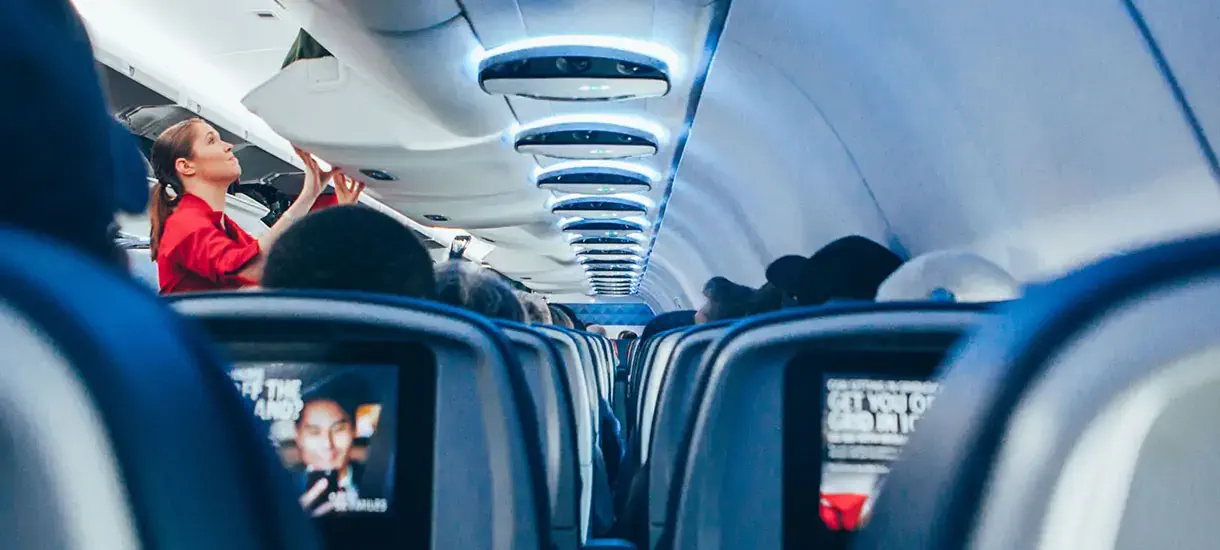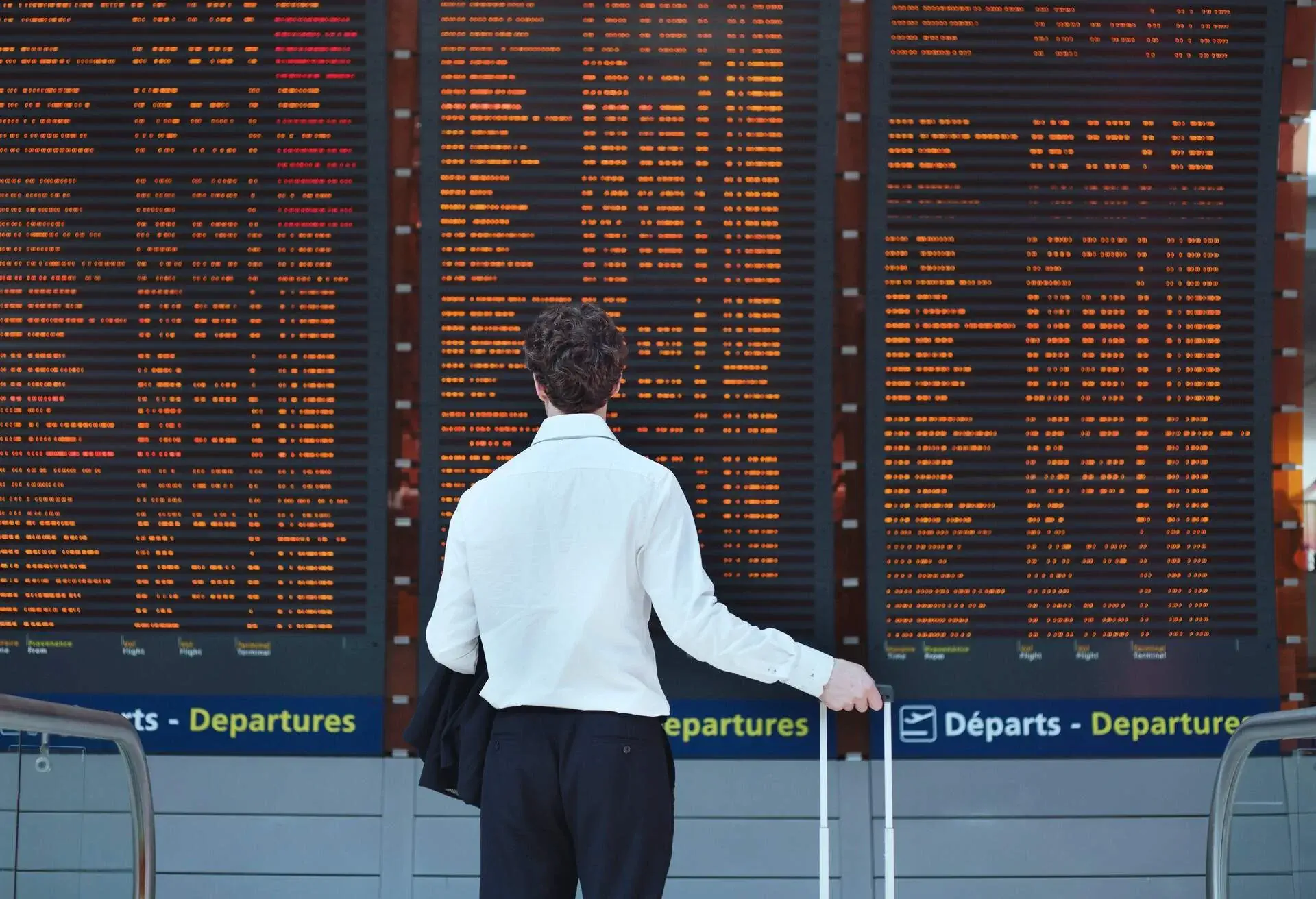There’s nothing like scoring a cheap flight. But then your plans change and you’re stuck wondering if you can get your money back.
Refundable tickets promise flexibility but often come with a higher price tag. Nonrefundable fares are easier on your wallet but have a few strings attached. What’s the real difference, and how do you know which one’s right for your trip? Let’s break it down.
The differences between refundable and non-refundable tickets.
Refundable tickets allow you to cancel your flight and get your money back on your original form of payment. Non-refundable tickets are generally cheaper, but you usually won’t get your money back if you need to cancel your trip.
A fully refundable ticket can cost a lot more than a non-refundable one. For instance, I searched a flight from LAX to NYC and found fully refundable fares on one flight that were twice the price of non-refundable ones. Some airlines may also charge a fee to issue your refund, while some may only give you a short window to request it.
Keep in mind that regardless of the type of ticket you buy, if an airline cancels your flight you are entitled to a refund. And in recent years, the major US carriers have done away with change or cancellation fees in many instances, so you can often change your flight and only pay the difference in fare.
When can you get a refund on non-refundable tickets?
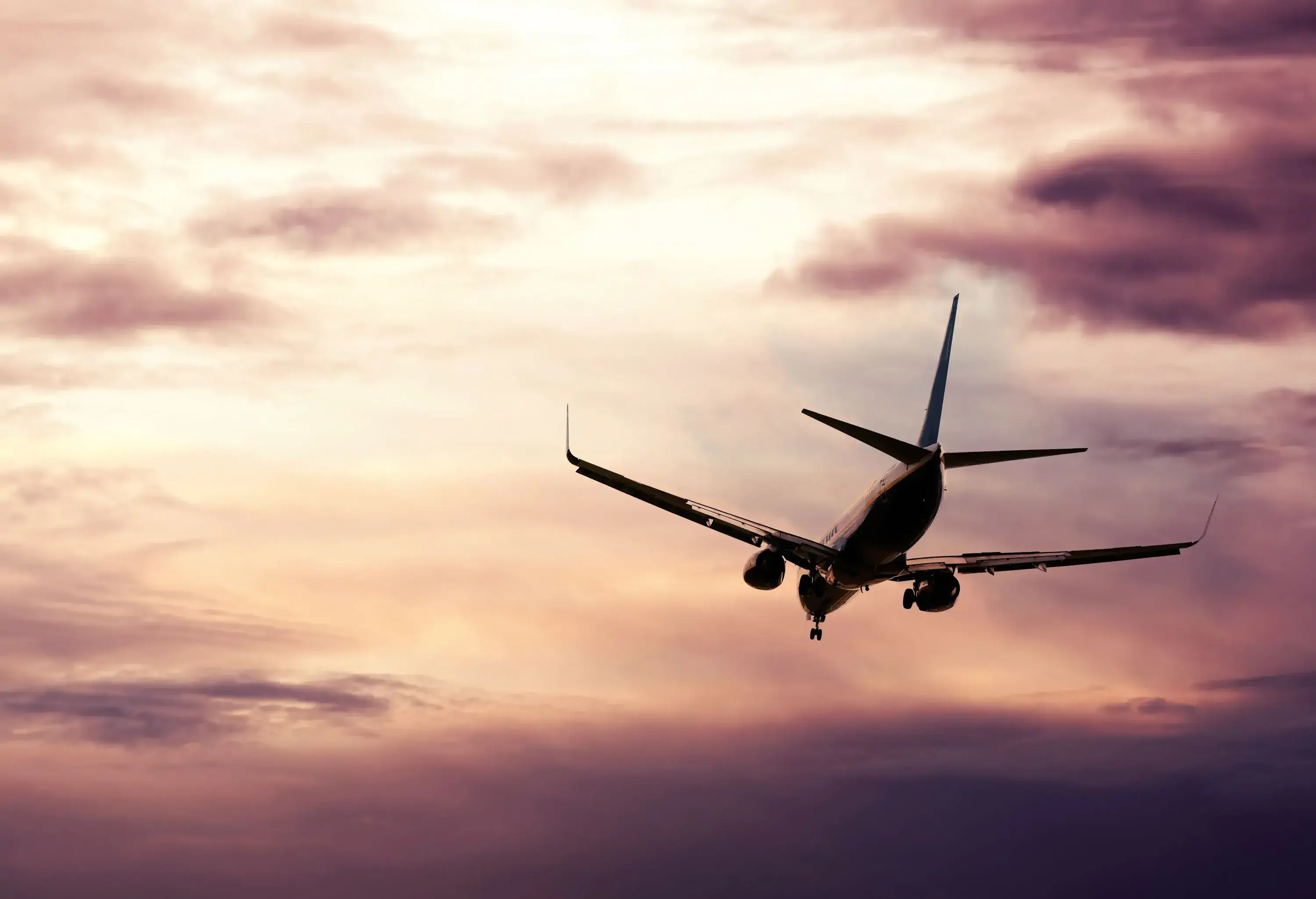
Airlines have their own contracts of carriage, which govern how they treat refunds, cancellations, and other events. The US Department of Transportation (DOT) holds the airlines accountable to their own contracts. DOT does, however, maintain some regulations that protect travelers on all airlines.
The 24-hour rule (U.S. DOT requirement).
The “24-hour rule” allows anyone, even if they hold a non-refundable ticket, to cancel a reservation and receive a full refund within 24 hours of the time they booked the flight. The only caveat is that the ticket must have been purchased at least seven days before the flight’s scheduled departure.
If you look across airline cancellation policies, you’ll see that many mention this 24-hour policy as a bonus or part of their customer commitment. It is, however, a federal requirement. The rule requires airlines to either refund travelers or allow them to hold the fare without paying for the ticket for 24 hours. They’re not required to offer both hold and refund options.
If you decide to cancel your flight and get refunded, you may pay a higher fare if you rebook later. The 24-hour rule only applies if you book your ticket directly with the airline. Beyond this, the general rule is that airlines will refund non-refundable tickets if the cancellation or significant change is their fault, but not if you decide not to fly – even if you get sick.
Airline cancellations or major schedule changes.
If your flight gets canceled or there is a significant change (such as a delay of over 12 hours), you are also entitled to a refund. This also goes for non-refundable tickets. You may even be eligible for compensation for the delay, and sometimes the airline will even pay for your hotel if you are stranded somewhere overnight.
Travel waivers for weather and disruptions.
Many airlines will also issue waivers for weather and disruptions such as technical issues. These allow passengers to reschedule their itineraries without paying the usual change fee. However, you must remain in the same cabin class as the original ticket.
To get your waiver, it’s important to be proactive. Oftentimes, the airline will send you the waiver via email, but you may also have to contact the airline yourself. If the weather is looking really bad and you’re hearing of widespread cancellations, you can even try calling the airline within 24 hours of departure to get flight credit.
EU261 and other international protections.
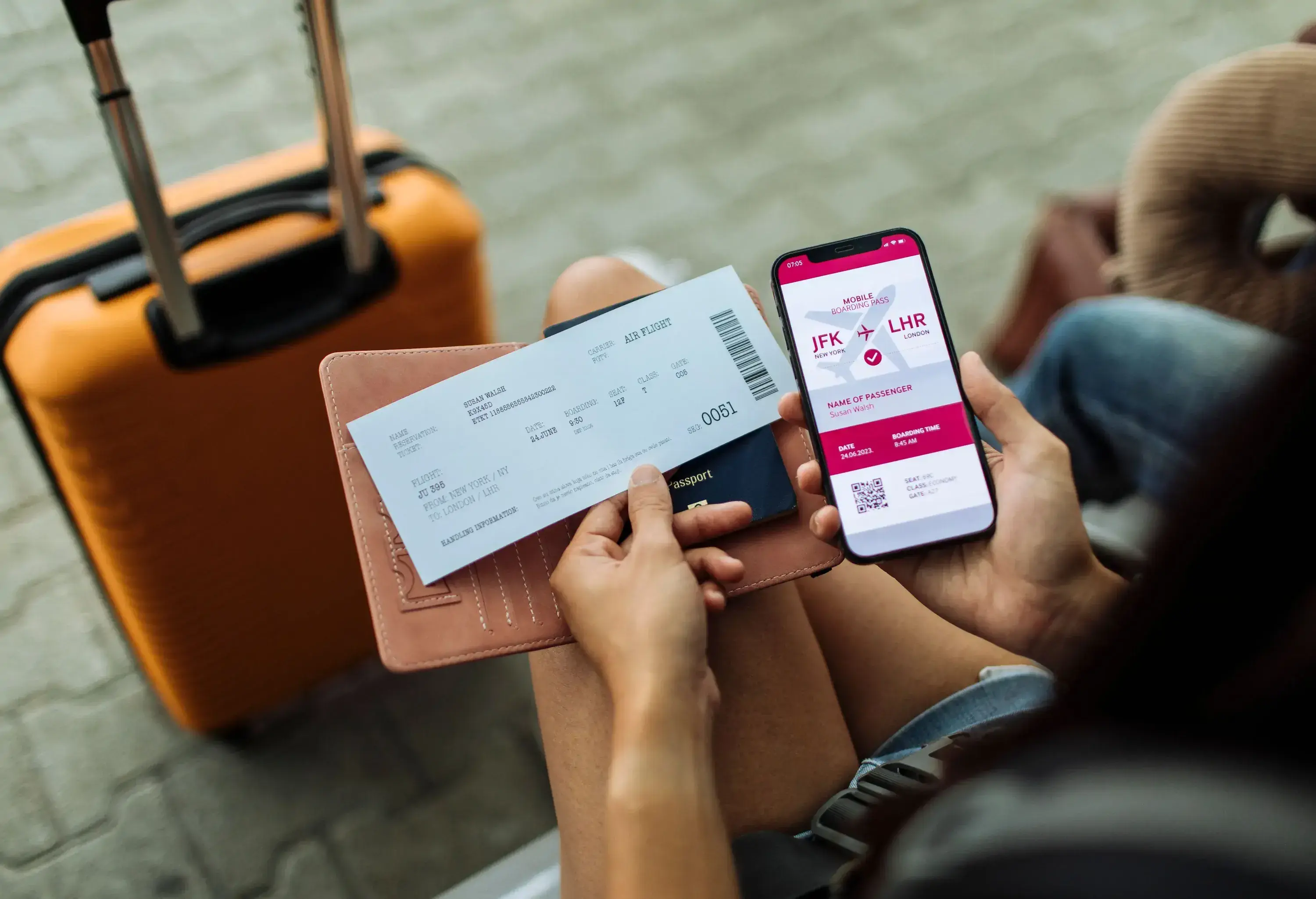
Like the DOT, the European Union also has flight passenger protections. Under the EU261 Regulation, these include your right to assistance such as meals, refreshments and overnight accommodations in the event of a flight delay.
Depending on the severity of the delay or disruption, you may also be eligible for compensation if the airline is at fault. In the event of a cancellation, you also have the right to choose between being rerouted to your final destination or receiving reimbursement.
It’s always wise to familiarize yourself with the passenger protections in the places you’re flying through.
Common refund policies among major airlines.
Although federal regulations require airlines to stick to the 24-hour rule, airlines have their own policies about the fees they charge for cancellations. Most offer both refundable and non-refundable tickets. If you buy a non-refundable ticket, you can generally change your travel dates, and some airlines waive change fees. As always, it’s best to check with the carrier’s own policy to see what you’re entitled to.
Can you get a refund on plane tickets with Delta?
Delta sells both refundable and non-refundable tickets on domestic and international flights. You can cancel a non-refundable ticket and Delta won’t charge you a cancellation fee if you have a Delta Main Cabin ticket (i.e above Basic Economy) for travel within the US, Puerto Rico, and US Virgin Islands, or originating in the US and traveling anywhere in the world.
Rather than refunding your money, it will issue you a credit to store for a future flight (just remember that you’ll still have to pay any fare differences on future flights). It does charge cancellation fees on non-refundable tickets in basic economy, or for tickets that originate outside the US, and those fees start at $99.
Can you get a refund on plane tickets with American Airlines?

If you bought a refundable ticket on American Airlines, they will process your refund back to your original card within 7 days. Like most other airlines, American does not refund non-refundable tickets, but it does allow you to cancel without a fee and store the value of your ticket as trip credit, which is good for one year from the date of issue.
American doesn’t charge change fees for domestic flights or travel originating in North or South America unless you bought Basic Economy, where no changes are permitted. However, for changes in a ticket originating outside North or South America, they may charge fees up to $750.
Can you get a refund on plane tickets with Frontier?
Frontier Airlines’ policy differs from other carriers in that its tickets are non-refundable. Beyond the federally mandated refund within 24 hours of purchase, Frontier has a strict cancellation policy. If you cancel your ticket after the 24-hour window, you’ll be charged a $99 fee for each direction and the value of your ticket will be held as a credit.
You can add on refundability through Frontier’s bundled “Works” program, which gives you full refundability, a checked bag (which you would normally pay for), reserved seats, and no-fee flight changes. The bundled perks programs start at $99 per direction and vary per ticket. You can only buy them directly from the airline.
Other ways to get your money back.
Even if your ticket was non-refundable, don’t panic. There are some other ways of getting your money back.
Does travel insurance cover non-refundable flight changes?
If you don’t have a fully refundable ticket, you can buy travel insurance that covers things like unexpected illness or family emergencies. Typically, standard travel insurance covers cancellations for a good reason, but not If you simply change your mind. If you’re the type to change on a dime, look for a cancel-for-any-reason (CFAR) add-on, which will let you cancel for reasons beyond what most policies cover.
You’ll pay more for these, so it’s a good idea to compare the cost to buying a fully refundable ticket (CFAR often makes the most sense if you’re insuring a trip that includes multiple features, like flight, hotel, cruise, and so on).
Credit card protections
Most major credit card providers offer good purchase protections to their customers. That’s one reason why it’s advisable to use them when making major purchases such as buying flight tickets.
Oftentimes, if there was a mistake with the ticket purchase, they can help you get your money back. They can even help you get a refund in the event of a flight delay, cancellation, or even when you simply choose not to travel. Always check with your credit card provider for their specific policies.
Airline vouchers and credits: what to watch out for

When it comes to airline vouchers and credits, which airlines often issue in place of refunds, it’s crucial that you read the fine print. Most vouchers have strict expiration dates, meaning you must book your new itinerary by a specific deadline.
There are usually also specific rebooking rules, such as “blackout dates” which are ineligible for rebooking and other limitations on which flights and destinations the vouchers can be used for.
It’s also worth checking whether you’re entitled to more than just a voucher, as there are legal regulations dictating when airlines are obligated to provide refunds rather than credits or vouchers alone.
The bottom line.
Buying a refundable ticket or non-refundable one really comes down to whether you need the flexibility and are willing to pay extra for it. If you’re unsure whether your circumstances might change, paying an extra fee for a refundable ticket could actually save you money in the long run by allowing you to get your money back if you need to cancel. However, for those who are sure about their itineraries, non-refundable tickets usually don’t pose an issue.
Most airlines offer both refundable and non-refundable plane tickets, and each airline is free to establish its own rules and fees for cancellations and refunds. It’s always best to check an airline’s own policies before booking, as travel agencies or websites may have their own refund rules. When trying to decide which type of ticket to choose, you can always start with KAYAK’s extensive search filters, which allow you to easily compare tickets and fare prices.
If you’d like more information on booking different kinds of fares or want to know the between premium economy vs. economy seats and business class vs. first class flights, don’t forget to check our section on all things flying.
Refundable tickets FAQs.
Yes, federal law mandates that airlines must give you a refund or hold your purchase within 24 hours of buying your ticket if it’s not for travel within a seven-day period and you bought it directly from the airline.
Consistent with the 24-hour rule, if you see a fare go on sale, you can cancel your ticket and buy a new one at a lower price. Some airlines offer limited price guarantees. Or if your flight is eligible for a free change or cancellation, you can have the airline issue you a travel credit which you then use for a lower-priced ticket.
Only fully refundable tickets will be refunded to your credit card (and some airlines charge a fee for this). Non-refundable tickets can be changed, sometimes with a fee, and their value is usually stored as a credit.
Airlines are not obliged to refund you if you cancel a non-refundable ticket for personal reasons, including being late or getting sick. Learning how early you need to get to the airport can be a life changer.
Whether you’re able to get a refund will depend on the fare type, airline policy and reason for missing your flight. In general, non-refundable tickets offer no refund, unless the airline is responsible such as in the case of missing a connection due to a significant delay. Refundable tickets, on the other hand, typically come with rebooking options or refund eligibility.




